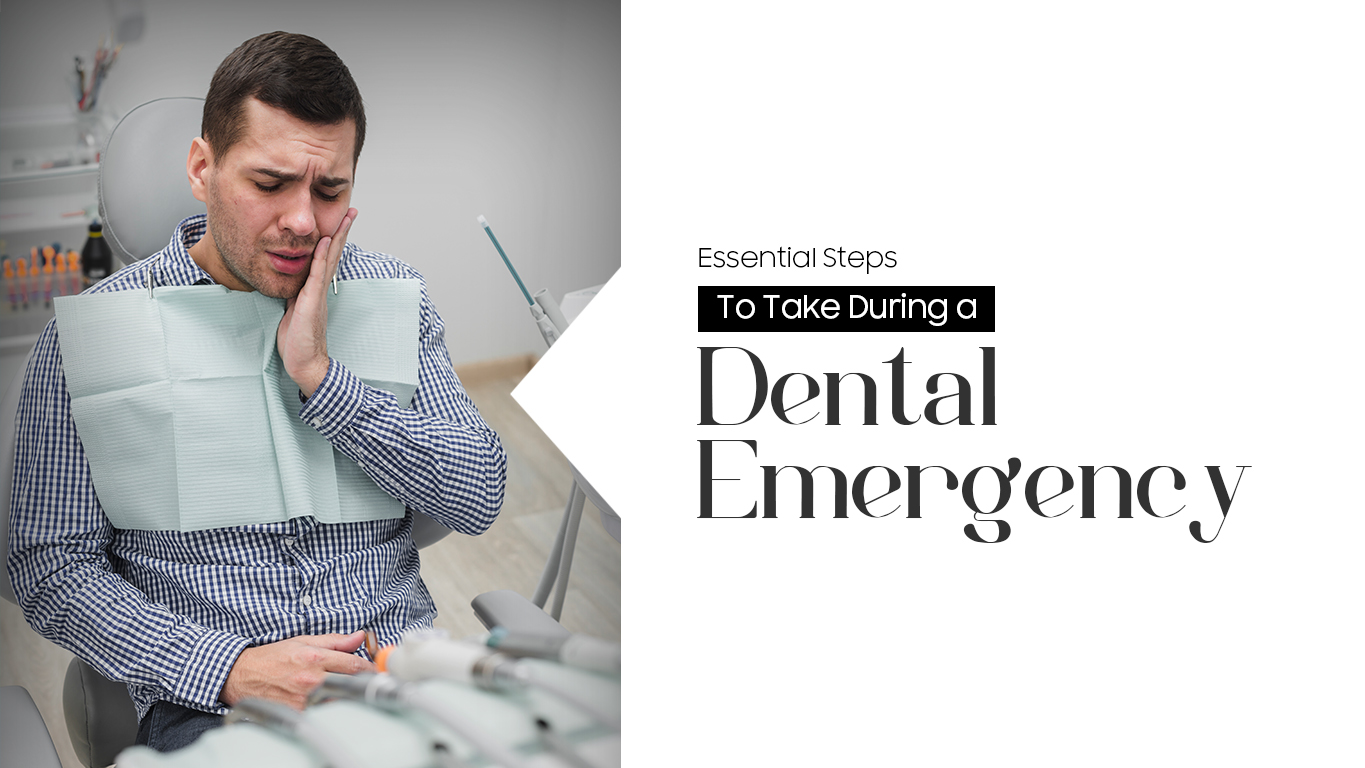Dental emergencies like a toothache, chipped tooth, or lost filling can happen unexpectedly and need urgent care to avoid permanent damage. Knowing what actions to take can help minimize pain and complications when an emergency strikes before you’re able to see your dentist. Follow these key steps for handling common dental emergencies until professional treatment is obtained.
- Pain Relief
If you’re experiencing severe pain from a tooth or gum problem, over-the-counter medications can provide temporary relief until a dental appointment. Anti-inflammatories like ibuprofen (Advil) or naproxen (Aleve) often work well for dental pain. Acetaminophen (Tylenol) may also relieve soreness. Take them according to package directions.
Topical numbing ointments containing lidocaine can also lessen surface-level pain when applied directly to the affected area. However, avoid using oral numbing gels or oils since they can inhibit breathing when aspirated if you accidentally swallow them.
Saltwater rinses and cold compresses pressed against the outside of your mouth and face can also temporarily alleviate pain and swelling for some dental issues. But don’t place ice directly on the teeth.
- Loose or Dislodged Teeth
If a tooth becomes extremely loose or gets knocked out completely, quick action is important to try to save it. Have the person carefully rinse with warm water if it’s a permanent adult tooth that has been knocked out. Avoid scrubbing it excessively. Handle it only by the crown, not the root.
Gently rinse the tooth socket to remove debris, but do not probe it. Immediately place the tooth back into its socket if possible. Have the person bite down gently on a washcloth or towel to help keep it in place. If you can’t reimplant it, store the tooth in a cup of milk while seeking emergency dental treatment. The milk helps preserve fiber attachments on the root surface.
You can also place the tooth between your cheek and gum to keep it moist. Avoid storing knocked-out teeth in water, though, which damages the vital periodontal ligament needed for tooth reimplantation. Seek emergency dental help ASAP for the best chances of saving the tooth.
- Broken or Cracked Teeth
Rinse your mouth out with warm water and use dental floss to gently remove any debris from around a broken tooth. Cover irritated areas with gauze if they are sharp. Over-the-counter pain relief medication can alleviate discomfort before the dentist.
Do not use super glue or bonding material to try fixing chips or cracks yourself at home. Doing so often worsens the damage. See your dentist as soon as possible for proper treatment and restoration. Leave temporary repairs to the professionals.
- Abscesses
A severely abscessed tooth with swelling needs urgent dental care. In the interim, rinse your mouth with antiseptic mouthwash to keep the area clean. Applying a warm compress against your face can help draw the pus and reduce swelling. Over-the-counter pain relievers are also useful for symptom relief before you can be seen.
- `Lost Fillings and Crowns
If a crown or filling comes out, place it in a cup of milk or between your cheek and gum just like you would for a natural tooth until you can be seen for re-cementation. Do not attempt to glue it back in place yourself. Cover the exposed gap with a cotton ball soaked in toothpaste or over-the-counter dental cement to protect the nerve.
Bottom Line
Always schedule a prompt follow-up examination after any dental emergency for assessment and any needed continuing care. Permanent restorations and root canal therapy may be required for some emergencies like fractures, abscesses, or trauma. Follow your dentist’s recommendations to prevent future complications.
Staying calm and taking quick action helps minimize pain and damage when dental emergencies occur. Know what to do in advance so you can respond appropriately. With proper emergency management, like following the first aid steps outlined and seeking professional treatment as soon as possible from your dentist or an emergency dental clinic, teeth, and gums can often fully recover from trauma, infection, and injury. Don’t delay when dental emergencies strike – get the urgent care needed promptly to prevent permanent repercussions and restore your smile’s health. The time taken to reach your dentist may mean the difference between saving and losing your teeth. Visit us today at Carrum Downs Dental Group for dental emergency.


